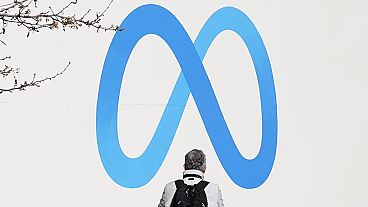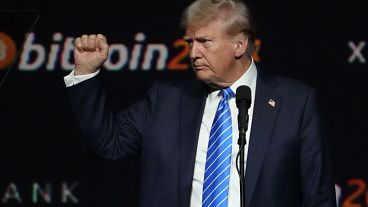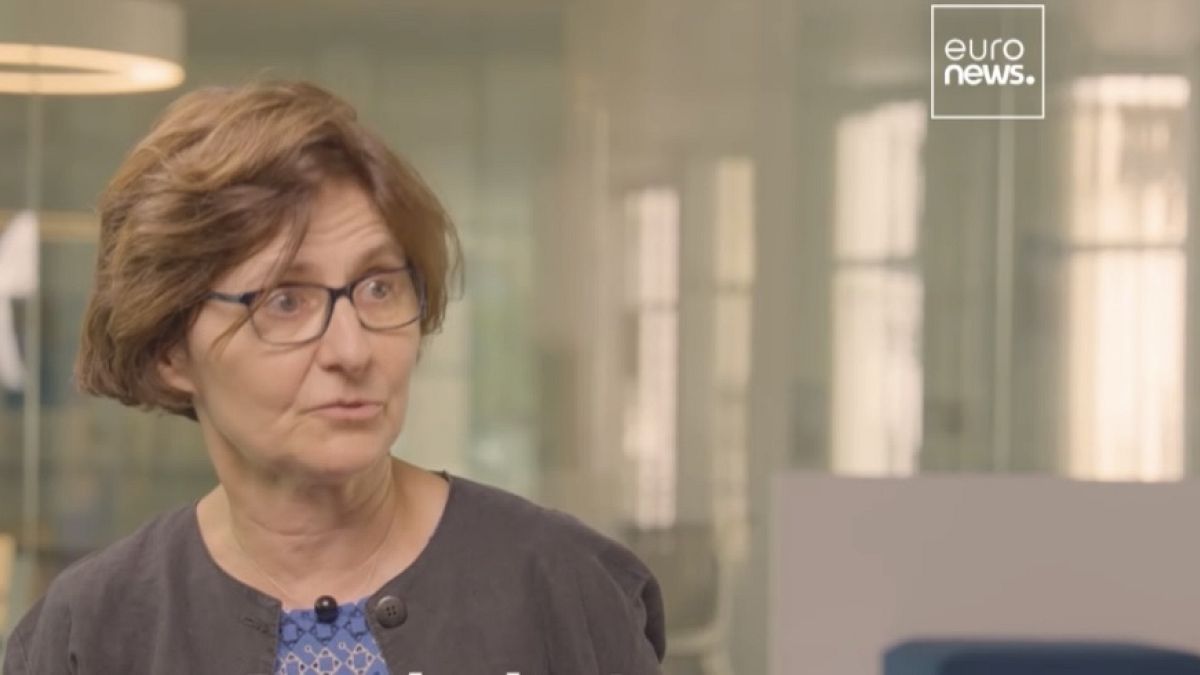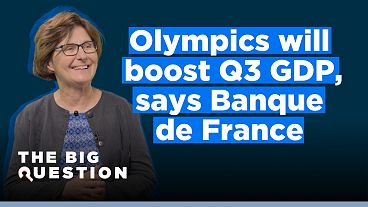Banque de France (Bank of France) deputy governor, Agnès Bénassy-Quéré, spoke to Euronews' Angela Barnes about the challenges ahead for central banks as the latest ECB rate decision hangs in the balance.
On 12 September, the European Central Bank (ECB) will announce its latest decision on interest rates - something Bank of France deputy governor, Agnès Bénassy-Quéré, is not allowed to comment on this week. However, she did discuss why it is important for citizens to follow economic data - and touched on the challenges ahead for central banks.
Biggest challenges for the Bank of France ahead
Agnès pointed to three key challenging areas for the Banque de France: disinflation, innovation and climate change.
“Climate change is really a challenge for central banks because on the one hand it's a source of shocks. Natural disasters are inflationary and transition climate policies are also a source of shocks to prices,” she explained.
While it’s undeniable that governments need to take big steps to tackle climate change, Agnès warned of two economic impacts, if not handled carefully.
“One could be inflationary with the carbon tax, and the other one is the depletion of public finance, which shifts the burden of stabilisation to central banks.”
Why citizens should follow GDP and inflation rates
To many of us, reading about a country’s GDP dropping 2% feels meaningless but it actually has a huge impact.
“National GDP is about €2,600bn,” Agnès explained.
“For households, it's the root of their purchasing power. If GDP doesn't grow, then purchasing power cannot grow,” she added.
To put this in further perspective, according to the Banque de France, each percentage point of GDP is worth €26 billion to France.
Furthermore, each inflation point not offset by an equivalent rise in wages reduces the purchasing power of household gross disposable income by €16bn.
Despite an extraordinary period of global unrest over the past few years, Agnès insists French purchasing power has not decreased. In fact, the unemployment rate has dropped to below pre-Covid levels and this has strengthened purchasing power.
“This is kind of a miracle, and people don't trust us,” Agnès stated.
Events that helped boost France's GDP in 2024
In addition to Taylor Swift's concerts in Paris, the deputy Bank of France governor also shared an update on its economic data following the Olympics.
“We survey[ed] about 8,000 companies in France. We estimate that the quarter-on-quarter [GDP] growth rates for the third quarter could be boosted by about a quarter of a percentage point (0.25%),” Agnès explained.
“It concerns hotels, restaurants, transportation, security, but also broadcasting and of course, the sales of tickets. So this is a short term effect. It's a one off, so only for one quarter. And then we are back to the normal growth rate.”
Watch the full interview with the Bank of France deputy governor, Agnès Bénassy-Quéré, here.















